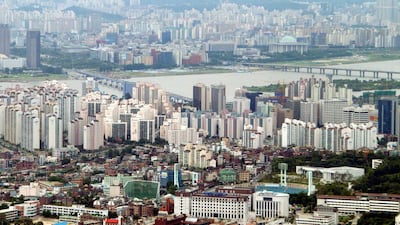At the time of her debut in 1993, the Korean writer Bae Suah was a government employee working behind the embarkation/disembarkation desk at Gimpo International Airport in Seoul. With no conventional "literary" education, she wrote in her spare time. The protagonist of her 1998 novel Nowhere to Be Found, newly translated into English by Sora Kim-Russell, finds herself in a similar routine office job: "We could chew gum or do our nails while answering the phones, and take over two hours to type even the sparest syllabus. We weren't lazy or indifferent, or anything. It was just the nature of the work." It's no surprise to find that Bae is currently translating the Portuguese classic of ennui, Pessoa's Book of Disquiet, into Korean.
I recently reviewed Korean writer Han Kang's The Vegetarian, whose heroine also finds her country's culture both empty and underlaid with repressed violence and, turning her back on it, undergoes a slow decline. The difference between the eponymous vegetarian and the narrator of Nowhere to Be Found is poverty: while Han's protagonist is the wife of an aspirational office worker, Bae's heroine washes her family's clothes after working a double shift. Her father is in prison on a trumped-up fraud charge (though, as with Kafka's Josef K: "The truth is, one way or another, he was corrupt … no one is ever completely innocent"), and her family are in "the prison of time called life. The prison of class and circumstance".
The heroine can’t afford college, or even a washing machine. “I was only 24,” she says, “but I was tired.”
The narrator’s boyfriend, Cheolsu, with whom she has “an emotionless and unthrilling first kiss”, had “learned to accept the tedium without the ennui”. His response to everything: “I’m not really sure.” His disaffection is backgrounded by his middle-class family’s reliance on foreign culture. He studies French (a nod to the filmmaker Jean-Luc Godard’s tales of the pre-1968 disaffected French youth he called the “Pepsi Generation”?), his family home features an “imitation Van Gogh”, and he seduces the narrator to the tune of “some Jamaican artist”. Inevitably “he didn’t make me feel anything, and I didn’t make him feel anything”.
This is a book about the frozen feelings. Cold is a recurring adjective. A mother is too abashed to give her son dinner, and the narrator’s attempts to deliver it to him turn into a nightmare shaggy-dog story in which she travels through an expressionist landscape punctuated with disturbing images, the cooked chicken like “the body of a woman frozen to death in Siberia”. Violence is seldom conveyed directly, but via a closing net of background information: a lecture on domestic violence; a wanted poster asking for information about murder suspects.
Bae dissolves conventional linear narrative, as though it were impossible for cause and effect to exist concurrently with such repression. Instead “time passed clumsily”. The narrator’s fantasies are inserted jarringly into the narrative – nightmares and utopias in dreams or unsent letters. “What was real, and what was fantasy?” she asks herself. “And what was what I wanted?” The answer seems to be, fantasy. Two daydreams recur: one idealistic, one self-destructive. These strategies give the narrator ways to exit her own story, even, eventually, time itself.
The narrator’s lassitude is belied by the book’s brevity. In 60 pages of switchback style, scenes change abruptly, pronouns are not tied down to characters until we’re sentences, or paragraphs in, and words are rearranged to bitterly absurd effect: “Cheolsu,” the narrator tells her boyfriend after a rebellious moment in which she flushes the chicken dinner, “I will eat your chicken when the day comes. I will gladly become your toilet. When I can for once in my life for a brief moment, become ardently pure. When that day comes.”
The narrator remains nameless. The people she encounters are “never anything more than who they were. Third person random.
“Human beings are capable of becoming perfectly pure at some moment of their lives,” she writes to the lecturer she never meets. The creation of a second Cheolsu whose existence is neither proved nor disproved is typical of Bae’s refusal of narrative. The mystery, like the achievement of the book, occurs not in space, but in time. “Back then Cheolsu was nowhere to be found. And it would be no different in the future.”
This book is available on Amazon.
Joanna Walsh is a UK-based writer. She edits fiction at 3:AM magazine and runs @read_women.
thereview@thenational.ae

